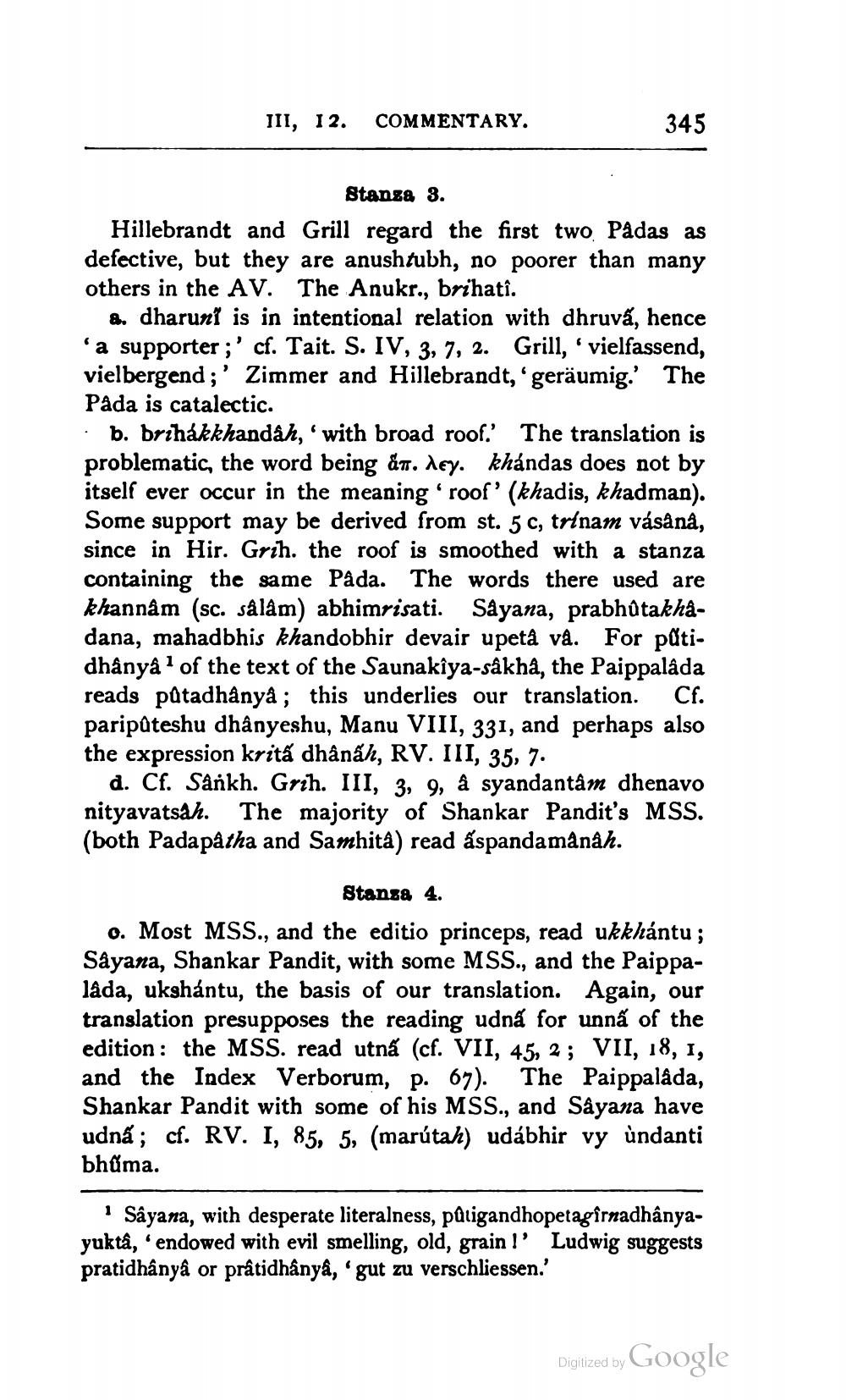________________
III, 12. COMMENTARY.
345
Stanza 3. Hillebrandt and Grill regard the first two Pädas as defective, but they are anushtubh, no poorer than many others in the AV. The Anukr., brihati.
. dharuni is in intentional relation with dhruva, hence 'a supporter ; ' cf. Tait. S. IV, 3, 7, 2. Grill, vielfassend, vielbergend;' Zimmer and Hillebrandt, geräumig.' The Pada is catalectic. . b. brihákkhandah, with broad roof. The translation is problematic, the word being &. dey. khándas does not by itself ever occur in the meaning 'roof' (khadis, khadman). Some support may be derived from st. 5 C, trinam váså nå, since in Hir. Grih. the roof is smoothed with a stanza containing the same Pàda. The words there used are khannam (sc. sålàm) abhimrisati. Sayana, prabhůtakhadana, mahadbhis khandobhir devair upetå vå. For påtidhânya ? of the text of the Saunakîya-sâkhå, the Paippalada reads patadhânyå; this underlies our translation. Cf. pariputeshu dhânyeshu, Manu VIII, 331, and perhaps also the expression krită dhânáh, RV. III, 35, 7.
d. Cf. Sankh. Grih. III, 3, 9, å syandantâm dhenavo nityavatsah. The majority of Shankar Pandit's MSS. (both Padapatha and Samhita) read aspandamanah.
Stansa 4. 0. Most MSS., and the editio princeps, read ukkhántu; Såyana, Shankar Pandit, with some MSS., and the Paippalåda, ukshántu, the basis of our translation. Again, our translation presupposes the reading udná for unna of the edition: the MSS. read utná (cf. VII, 45, 2 ; VII, 18, 1, and the Index Verborum, p. 67). The Paippalada, Shankar Pandit with some of his MSS., and Sayana have udná; cf. RV. I, 85, 5, (marútah) udábhir vy undanti bhúma.
· Sâyana, with desperate literalness, pūligandhopetagîrnadhânyayukta, endowed with evil smelling, old, grain l' Ludwig suggests pratidhânya or prâtidhânya, 'gut zu verschliessen.'
Digized by Google
Digitized by




